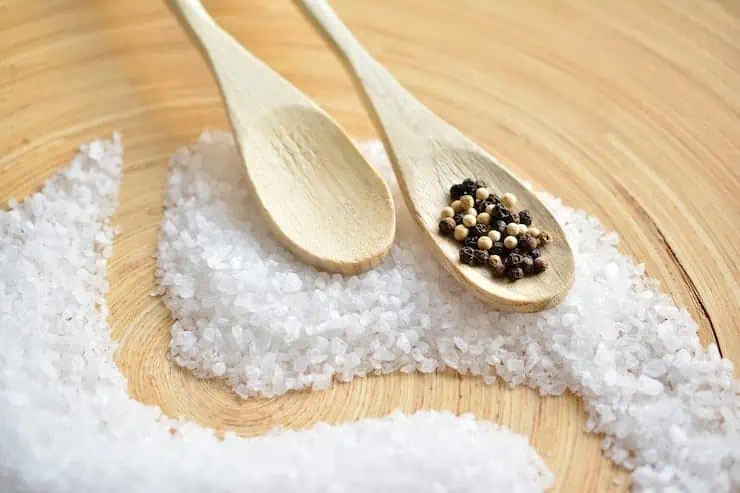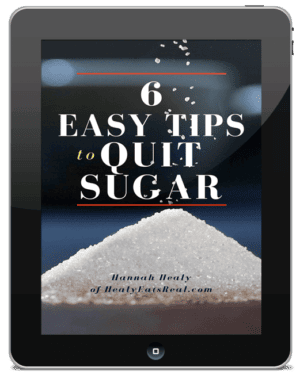How Salt Can Help You Get Better Sleep
This post may contain affiliate links. As an Amazon Associate I earn from qualifying purchases. Please read the disclosure policy.
Salt and sleep are two words that don’t naturally seem to belong in the same sentence, but salt may actually be the missing link between you and a good night’s sleep.
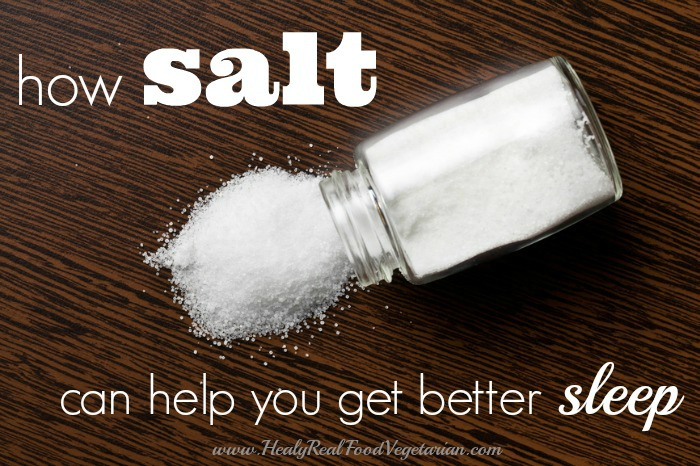
Sleep and salt are connected by simple metabolic processes. Salt has very specific effects on stress hormones and brain chemicals that can lead to less stress and better sleep.
But Isn’t Salt Bad for Me?
Before we get into how salt can help you get better sleep, I want to dispel the “low-salt” myth. Low-salt diets are promoted as healthy for everyone, but the scientific evidence disagrees.
“No strong evidence exists that advising people to eat less salt or putting them on a low-salt diet reduces their death rate or cuts cardiovascular events, an analysis of seven studies found.” – from Bloomberg News
But there is some evidence that low-salt diets can actually have a negative impact on our metabolic health:
- Low-salt diets have been linked to promoting insulin resistance in healthy individuals. When two groups of men and women were given a high-salt diet versus a low-salt diet, the low salt diet group developed markers for insulin resistance. (source)
- One 2011 study found that people who consume a moderate amount of salt were in the lowest risk category for heart problems and death, even lower than people who ate less salt. (source) In this study, “moderate” sodium intake was about 4,000 – 6,000 milligrams per day. (Interesting, when you consider the USDA recommends sodium intake should be less than 2,300 milligrams per day.)
What Kind of Salt is Best?
Commercial table salt is often loaded with unhealthy additives, so be sure to choose natural sea salt or pink himalayan salt that contains trace minerals in addition to sodium.
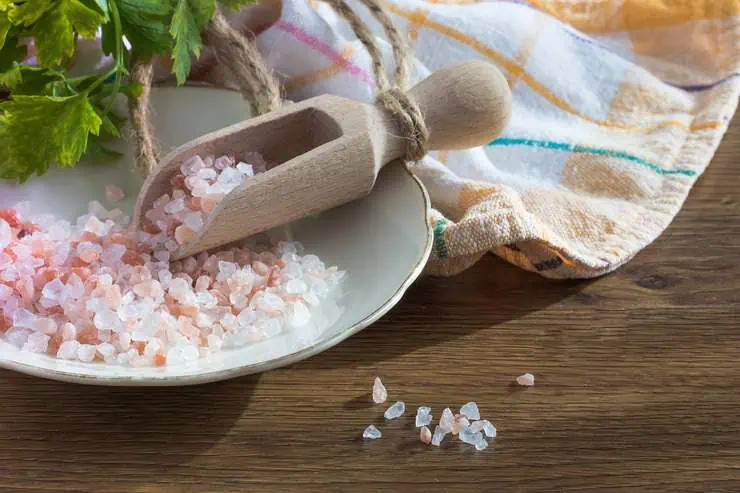
How Salt Can Help You Get Better Sleep
Now on to the good stuff. Salt can help you relax and finally get to sleep in two ways:
Salt Lowers Stress. You know those nights when you can’t sleep because your mind is racing with thoughts about work or something else you’re stressed about? Salt can actually help calm you down! Research shows that salt has a unique effect on stress levels. Having enough sodium in your bloodstream can reduce your stress response, so you don’t experience as much anxiety about things that might normally stress you out (source).
Salt Raises Oxytocin Levels. Salt also contributes to another important anti-stress action in the body: it raises your oxytocin levels (source). Oxytocin is a hormone that helps you feel calm and relaxed, and increases your sense of well being–the exact feelings you’ll want to experience if you’re trying to settle down and get ready for sleep.
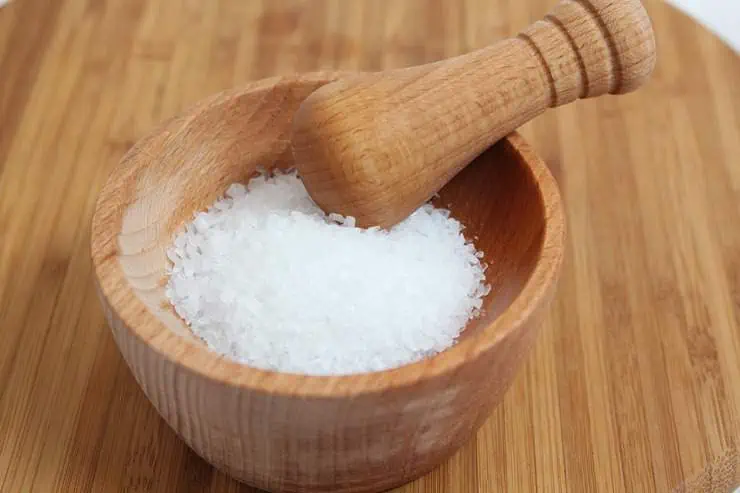
How to Use Salt to Get Better Sleep
Here are some easy ways you can use salt to get better sleep:
Salt your food to taste during the day. Follow your body’s cues when it comes to salt intake. As long as you’re eating mostly whole, unprocessed foods, the body has a pretty good sense of how much salt you need.
Throughout the day, your need for salt may fluctuate depending on many factors that affect your electrolyte balance, so listening to your body and salting your food to taste is the best way to maintain the balance your body needs for optimal metabolic function.
Eat a balanced bedtime snack. A simple snack that contains fat, protein and carbohydrates plus a little salt can do wonders for your sleep. Try something like this:
- fruit and salted nuts
- Bone broth salted to taste with some sweet potato
Drink a bedtime tonic with a dash of salt. Try adding a dash or two of salt to a calming bedtime tonic like herbal tea (holy basil and chamomile are especially calming).
Take it straight. Some people find it easy to simply put up to 1/8 teaspoon of salt straight on their tongue and then chase it with a small glass of fresh juice or filtered water.
